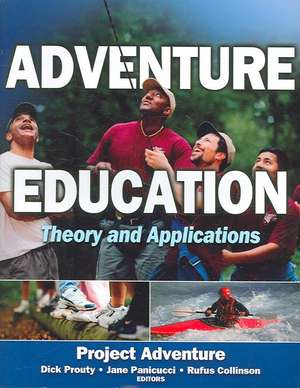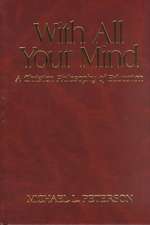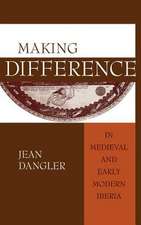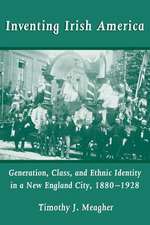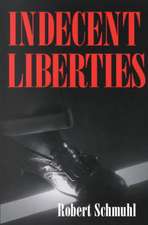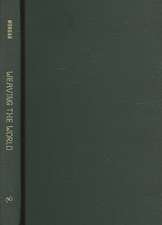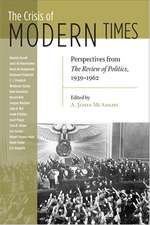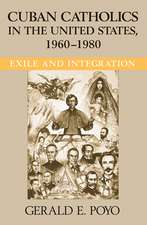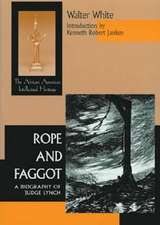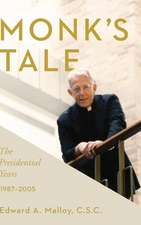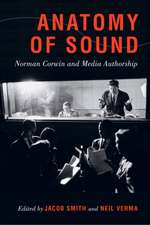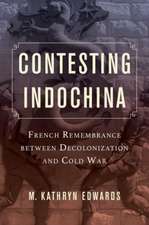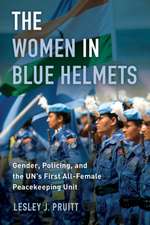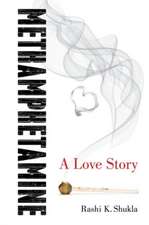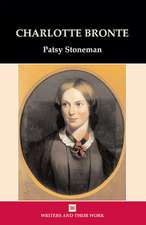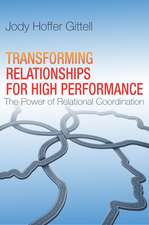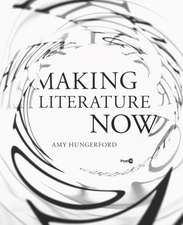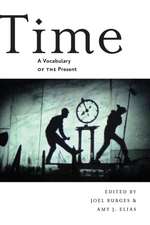Adventure Education – Theory and Applications
Autor Dick Prouty, Jane Panicucci, Rufus Collinson, Project Adventuen Limba Engleză Paperback – 15 ian 2007
Preț: 353.40 lei
Nou
Puncte Express: 530
Preț estimativ în valută:
67.63€ • 70.35$ • 55.83£
67.63€ • 70.35$ • 55.83£
Carte disponibilă
Livrare economică 24 martie-07 aprilie
Livrare express 08-14 martie pentru 48.10 lei
Preluare comenzi: 021 569.72.76
Specificații
ISBN-13: 9780736061797
ISBN-10: 0736061797
Pagini: 264
Ilustrații: 49 illustrations, 15 photos
Dimensiuni: 215 x 278 x 19 mm
Greutate: 0.75 kg
Editura: MG – Human Kinetics
Locul publicării:United States
ISBN-10: 0736061797
Pagini: 264
Ilustrații: 49 illustrations, 15 photos
Dimensiuni: 215 x 278 x 19 mm
Greutate: 0.75 kg
Editura: MG – Human Kinetics
Locul publicării:United States
Notă biografică
Dick Prouty, AB, is Project Adventure's president, executive director, and CEO. With Project Adventure since 1980, he facilitated the structure of PA as a 501(c)3 nonprofit organization. In 1982, he became director and led the strategic planning and organizational development of PA as it became the premier organization of facilities-based adventure learning. Coauthor of PA's classic text on adventure-based counseling, Islands of Healing, Prouty has become a leading proponent of the unique place and theory of adventure-based experiential education. He has also served as founder of the Association for Experiential Education's (AEE) accreditation committee, founder of the board of directors of Association for Challenge Course Technology (ACCT), and chair of the board of the Waring School. Prouty's current responsibilities at PA include strategic planning, partnering and development planning, directing new publications, and leading the senior executive team.
Jane Panicucci, MAEd, is currently Project Adventure's chief operations officer. Her adventure background includes 11 years as a course director at Outward Bound. In the mid-1980s, as a public school physical educator, Panicucci designed an adventure curriculum that is still going strong. Her current consulting specialties involve working with teachers and administrators to generate positive change in their schools and to create high-performing teams for both nonprofit and for-profit organizations. She is the lead author of PA's series of adventure curricula for physical education and is currently working on a fitness program curriculum.
Rufus (Ruthanne) Collinson has been working in the adventure field for 18 years as manager of communications, editor, and book developer for Project Adventure (PA). She is responsible for editing and developing all PA publications. Rufus is also a published poet. She and her daughter Suzanna have conducted experiential writing workshops, called Words from the Wild, at several field conferences. In 2001, Rufus received the Association for Experiential Education's (AEE) Karl Rohnke Creativity Award.
About Project Adventure
Project Adventure is an innovative teaching organization that provides leadership in the expansion of adventure-based experiential programming. Project Adventure develops responsible individuals, productive organizations, and sustainable communities.
In its 32-year history, Project Adventure has had its programs adopted and adapted throughout the world. It has published numerous titles based on its research, and it has its Rainbow Lake Campus in Covington, Georgia, where it helps more than 100 youths enrolled in court-adjudicated programs to become productive citizens. It also has partnerships with Prescott University in Arizona and the University of New Hampshire. Through these partnerships, Project Adventure researches and develops programs and materials that can be used anywhere.
Jane Panicucci, MAEd, is currently Project Adventure's chief operations officer. Her adventure background includes 11 years as a course director at Outward Bound. In the mid-1980s, as a public school physical educator, Panicucci designed an adventure curriculum that is still going strong. Her current consulting specialties involve working with teachers and administrators to generate positive change in their schools and to create high-performing teams for both nonprofit and for-profit organizations. She is the lead author of PA's series of adventure curricula for physical education and is currently working on a fitness program curriculum.
Rufus (Ruthanne) Collinson has been working in the adventure field for 18 years as manager of communications, editor, and book developer for Project Adventure (PA). She is responsible for editing and developing all PA publications. Rufus is also a published poet. She and her daughter Suzanna have conducted experiential writing workshops, called Words from the Wild, at several field conferences. In 2001, Rufus received the Association for Experiential Education's (AEE) Karl Rohnke Creativity Award.
About Project Adventure
Project Adventure is an innovative teaching organization that provides leadership in the expansion of adventure-based experiential programming. Project Adventure develops responsible individuals, productive organizations, and sustainable communities.
In its 32-year history, Project Adventure has had its programs adopted and adapted throughout the world. It has published numerous titles based on its research, and it has its Rainbow Lake Campus in Covington, Georgia, where it helps more than 100 youths enrolled in court-adjudicated programs to become productive citizens. It also has partnerships with Prescott University in Arizona and the University of New Hampshire. Through these partnerships, Project Adventure researches and develops programs and materials that can be used anywhere.
Cuprins
Part I. Exploring Adventure Education
Chapter 1. Introduction to Adventure Education
Dick Prouty
Chapter 2. Philosophy and Theory of Adventure Education
Alan Ewert and Dan Garvey
Chapter 3. Cornerstones of Adventure Education
Jane Panicucci
Chapter 4. Risk and Safety in Adventure Programming
Charles R. Gregg
Chapter 5. Individual Outcomes of Participating in Adventure
Jim Stiehl and Melissa Parker
Part II. Defining Skills and Competencies for Adventure Practitioners
Chapter 6. Responsibilities of Adventure Education Leaders
Denise Mitten and Kent Clement
Chapter 7. Facilitating the Adventure Process
Michael A. Gass and Cheryl A. Stevens
Part III. Planning and Implementing Adventure Experiences
Chapter 8. Portable Adventure Activities
Lisa Faulkingham Hunt
Chapter 9. Low-Element Challenge Courses
Alison Rheingold
Chapter 10. High-Element Challenge Courses
Christopher J. Damboise
Chapter 11. Teaching and Leading Outdoor Adventure Pursuits
Mark Wagstaff, Aram Attarian, and Jack K. Drury
Chapter 12. Adventure Education Programming and Career Paths
Steven Guthrie and Rita Yerkes
Appendix: Overview of the Accreditation Standards of the Association for Experiential Education
Chapter 1. Introduction to Adventure Education
Dick Prouty
Chapter 2. Philosophy and Theory of Adventure Education
Alan Ewert and Dan Garvey
Chapter 3. Cornerstones of Adventure Education
Jane Panicucci
Chapter 4. Risk and Safety in Adventure Programming
Charles R. Gregg
Chapter 5. Individual Outcomes of Participating in Adventure
Jim Stiehl and Melissa Parker
Part II. Defining Skills and Competencies for Adventure Practitioners
Chapter 6. Responsibilities of Adventure Education Leaders
Denise Mitten and Kent Clement
Chapter 7. Facilitating the Adventure Process
Michael A. Gass and Cheryl A. Stevens
Part III. Planning and Implementing Adventure Experiences
Chapter 8. Portable Adventure Activities
Lisa Faulkingham Hunt
Chapter 9. Low-Element Challenge Courses
Alison Rheingold
Chapter 10. High-Element Challenge Courses
Christopher J. Damboise
Chapter 11. Teaching and Leading Outdoor Adventure Pursuits
Mark Wagstaff, Aram Attarian, and Jack K. Drury
Chapter 12. Adventure Education Programming and Career Paths
Steven Guthrie and Rita Yerkes
Appendix: Overview of the Accreditation Standards of the Association for Experiential Education
